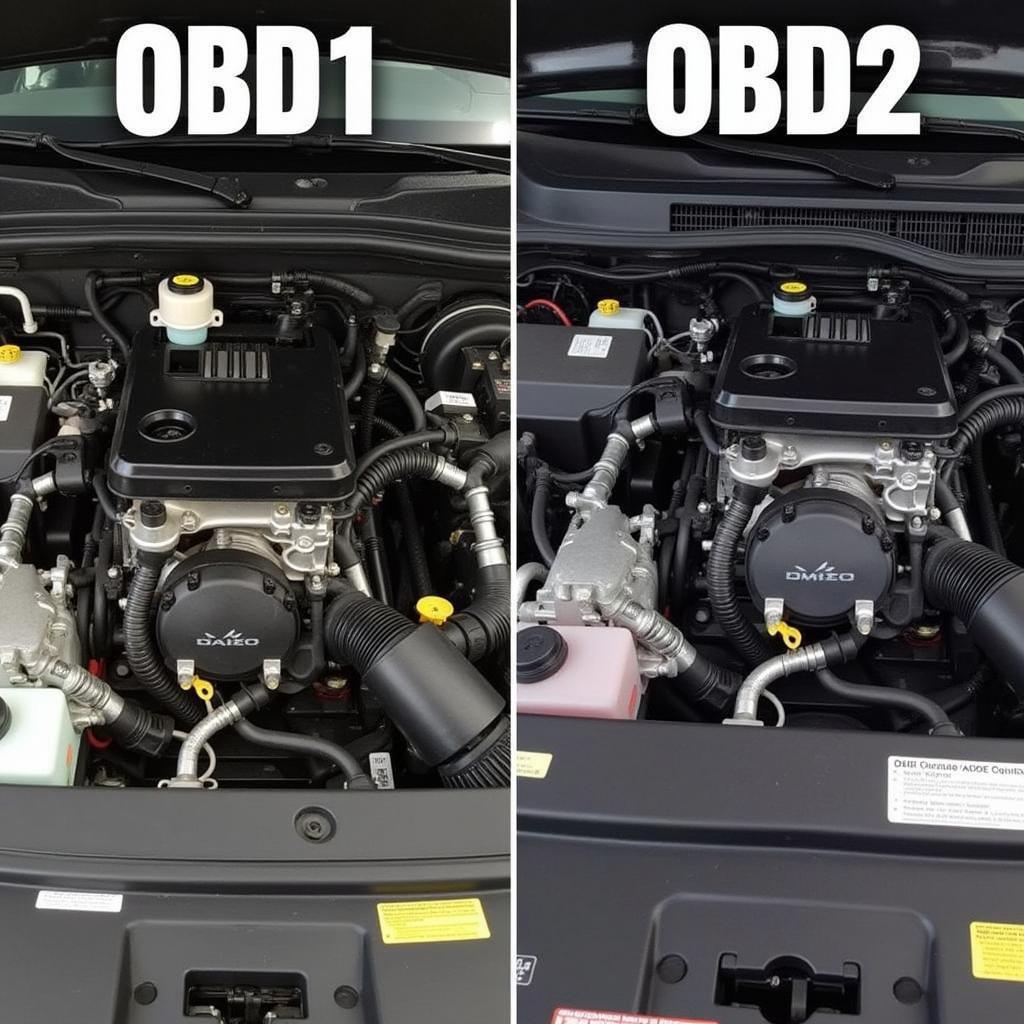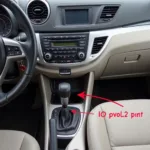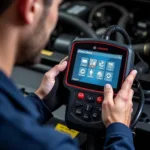The idea of putting an older, simpler OBD1 engine into a newer OBD2 car might seem appealing for various reasons, but can it actually be done? The short answer is: it’s complicated. While not impossible, swapping an OBD1 engine (used in vehicles manufactured before 1996 in the US) into an OBD2 car (manufactured from 1996 onwards) presents significant challenges, mainly due to the different ways these systems handle engine management and emissions.
Understanding the Core Difference: OBD1 vs. OBD2
Before diving into the complexities, it’s crucial to understand the fundamental difference between OBD1 and OBD2 systems. OBD1, or On-Board Diagnostics 1, utilizes a simpler system primarily focused on monitoring the engine’s components related to emissions. It uses basic sensors and a less sophisticated ECU (Engine Control Unit) compared to its successor.
OBD2, on the other hand, represents a significant leap in engine management and emissions control. It employs a wider array of sensors that constantly monitor various engine parameters, including air intake, fuel delivery, ignition timing, and exhaust emissions. The data collected is then processed by a much more advanced ECU, allowing for precise control over engine performance and emissions output.
Challenges of Swapping an OBD1 Engine into an OBD2 Car
The difference in complexity between OBD1 and OBD2 systems leads to several challenges when attempting an engine swap:
- Wiring Harness Incompatibility: OBD1 and OBD2 vehicles utilize different wiring harnesses, meaning a direct swap is impossible. You would need to extensively modify the existing harness or source a custom one, requiring a deep understanding of automotive wiring diagrams.
- Sensor Discrepancies: OBD2 cars rely on a greater number of sensors compared to their OBD1 counterparts. This means you might need to add additional sensors to the OBD1 engine to ensure compatibility with the OBD2 car’s ECU.
- ECU Compatibility: The ECU is the brain of the engine management system, and an OBD2 car’s ECU is designed specifically to communicate with OBD2-compliant components. Using an OBD1 engine would necessitate either finding a compatible standalone ECU or undertaking the complex task of reprogramming the existing ECU.
- Emissions Compliance: This is perhaps the most significant hurdle. OBD2 systems are designed to meet stricter emission standards. Swapping in an OBD1 engine, even with modifications, might not pass emissions tests, making the vehicle illegal to drive in many areas.
Is It Ever Possible?
While the challenges are substantial, swapping an OBD1 engine into an OBD2 car is not entirely impossible. However, it requires extensive mechanical knowledge, wiring expertise, and a willingness to invest significant time and resources.
“Successfully integrating an OBD1 engine into an OBD2 car often involves creating a hybrid system,” says John Miller, a veteran automotive engineer with over 20 years of experience. “This typically requires sourcing compatible components, adapting wiring harnesses, and potentially using a standalone ECU to manage the engine’s functions.”
Alternatives to Consider
Given the complexities, several alternatives are often more practical and cost-effective:
- OBD2 Engine Swap: The most straightforward solution is to swap the OBD1 engine with an OBD2-compliant one from a similar make and model. This minimizes compatibility issues and ensures emissions compliance.
- OBD1 Car with OBD2 Engine Emissions: This involves keeping your existing OBD1 car but upgrading specific components to meet OBD2 emissions standards.
- Selling and Upgrading: Selling your current vehicle and purchasing a newer model with an OBD2 engine might be the simplest, albeit potentially more expensive, solution.
Making Informed Decisions
Ultimately, the decision to swap an OBD1 engine into an OBD2 car is a complex one. It’s crucial to thoroughly research the specific vehicles involved, weigh the costs and benefits, and realistically assess your mechanical skills or seek assistance from experienced professionals.
For those seeking detailed guidance on OBD systems, engine swaps, or any other automotive diagnostic needs, OBDFree provides a wealth of information and expert advice to help you navigate the complexities of your vehicle’s systems.
Need further assistance? Contact our team of automotive experts via WhatsApp: +1(641)206-8880 or Email: [email protected]. We’re available 24/7 to answer your questions.


